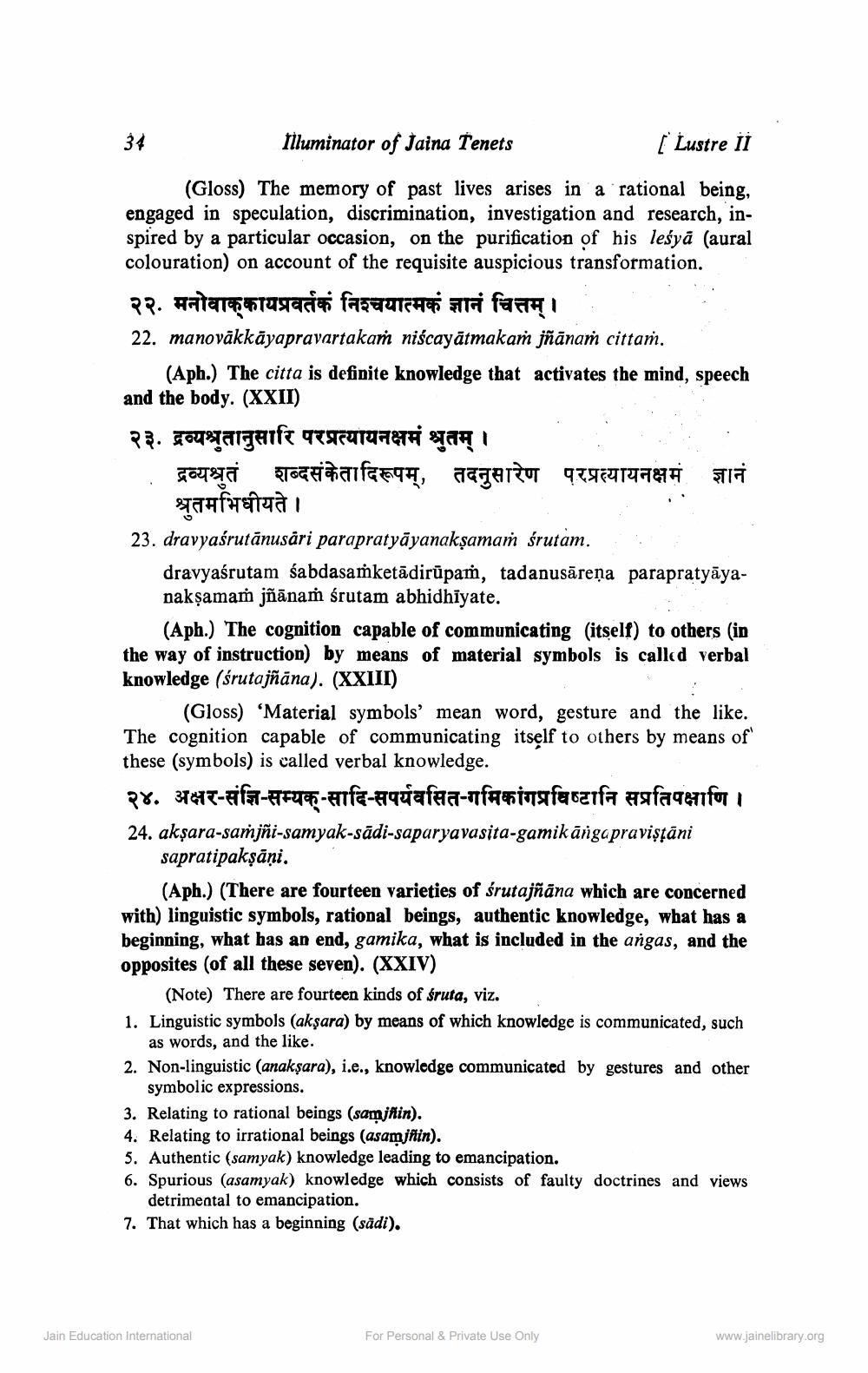________________
34
Illuminator of Jaina Tenets
[Lustre įj
(Gloss) The memory of past lives arises in a rational being, engaged in speculation, discrimination, investigation and research, in spired by a particular occasion, on the purification of his leśyā (aural colouration) on account of the requisite auspicious transformation. २२. मनोवाक्कायप्रवर्तकं निश्चयात्मकं ज्ञानं चित्तम् । 22. manovākkāyapravartakaṁ niścayātmakaṁ jñānaṁ cittas.
(Aph.) The citta is definite knowledge that activates the mind, speech and the body. (XXII) २३. द्रव्यश्रतानुसारि परप्रत्यायनक्षमं श्रुतम् ।
द्रव्यश्रुतं शब्दसंकेतादिरूपम्, तदनुसारेण परप्रत्यायनक्षम ज्ञानं
श्रुतमभिधीयते। 23. dravyasrutānusări parapratyāyanaksamaṁ śrutam.
dravyasrutam sabdasamketädirūpam, tadanusāreņa parapratyāyanakşamam jñānam śrutam abhidhīyate.
(Aph.) The cognition capable of communicating itself) to others (in the way of instruction) by means of material symbols is called verbal knowledge (śrutajñāna). (XXIII)
(Gloss) 'Material symbols' mean word, gesture and the like. The cognition capable of communicating itself to others by means of these (symbols) is called verbal knowledge. २४. अक्षर-संज्ञि-सम्यक्-सादि-सपर्यवसित-गमिकांगप्रविष्टानि सप्रतिपक्षाणि । 24. akşara-saṁjñi-samyak-sādi-saparyavasita-gamikāngapraviştāni
sapratipakşāņi.
(Aph.) (There are fourteen varieties of śrutajñāna which are concerned with) linguistic symbols, rational beings, authentic knowledge, what has a beginning, what has an end, gamika, what is included in the angas, and the opposites (of all these seven). (XXIV)
(Note) There are fourteen kinds of śruta, viz. 1. Linguistic symbols (akşara) by means of which knowledge is communicated, such
as words, and the like. 2. Non-linguistic (anakşara), i.e., knowledge communicated by gestures and other
symbolic expressions. 3. Relating to rational beings (samjfin). 4. Relating to irrational beings (asam jfin). 5. Authentic (samyak) knowledge leading to emancipation. 6. Spurious (asamyak) knowledge which consists of faulty doctrines and views
detrimental to emancipation. 7. That which has a beginning (sādi).
Jain Education International
For Personal & Private Use Only
www.jainelibrary.org




